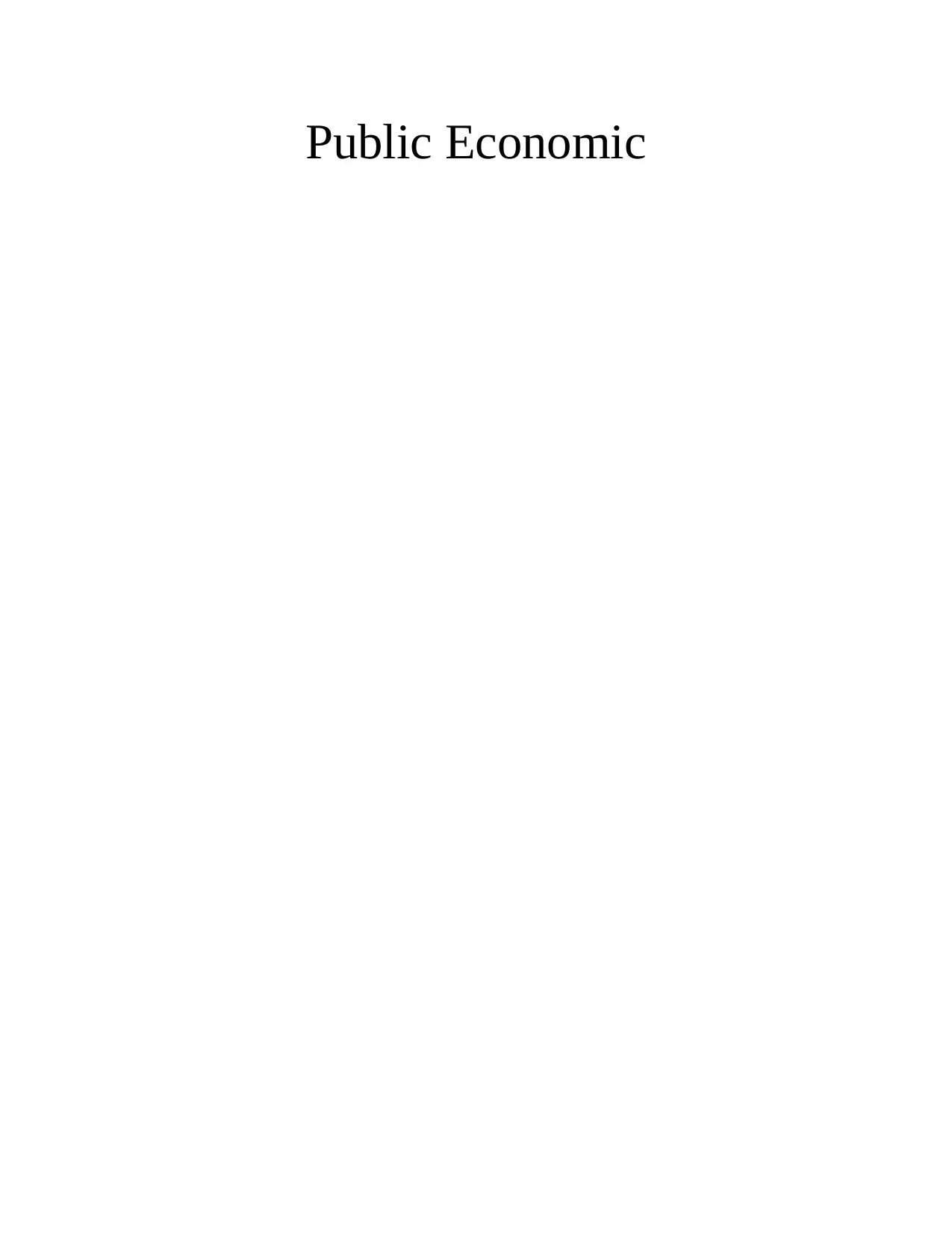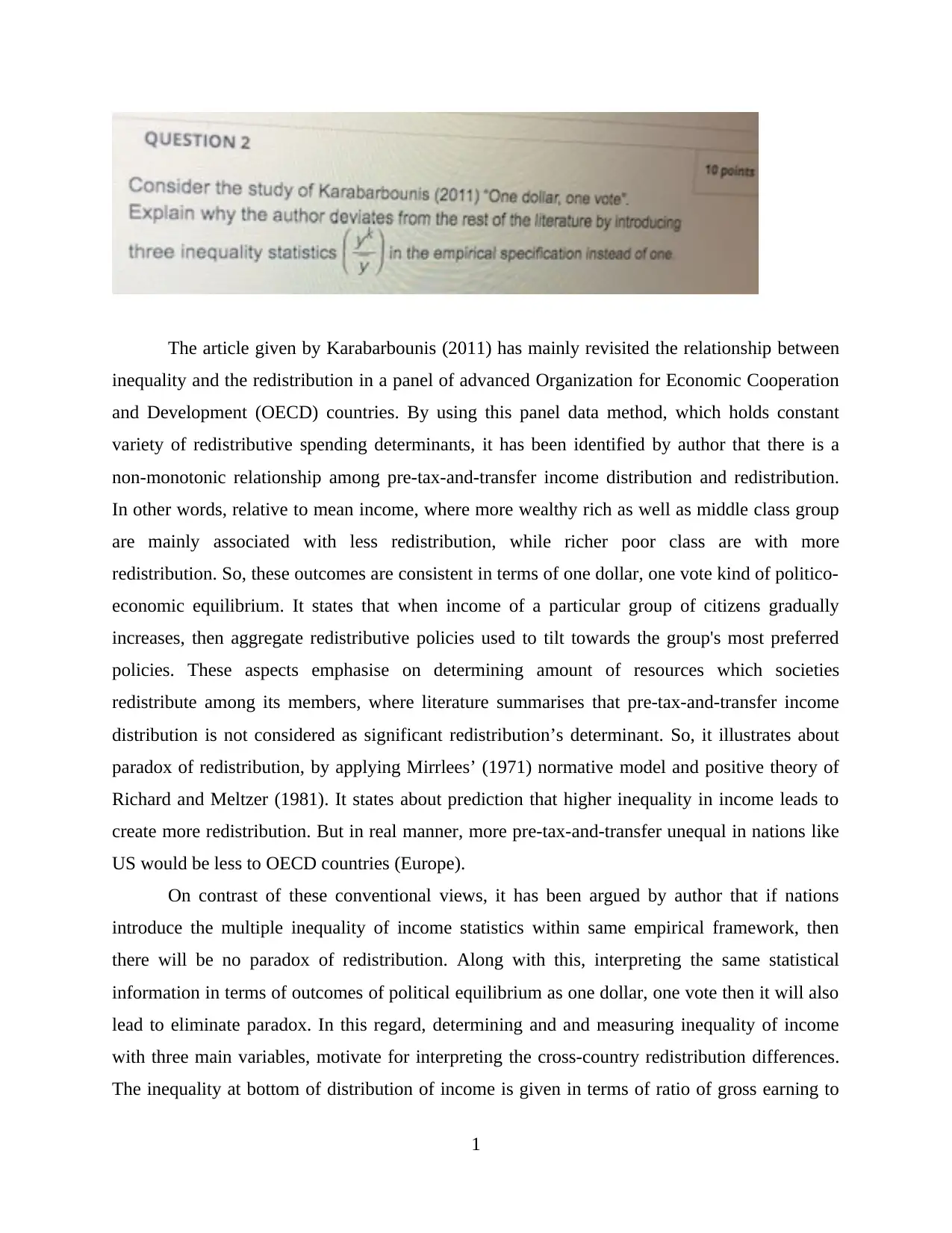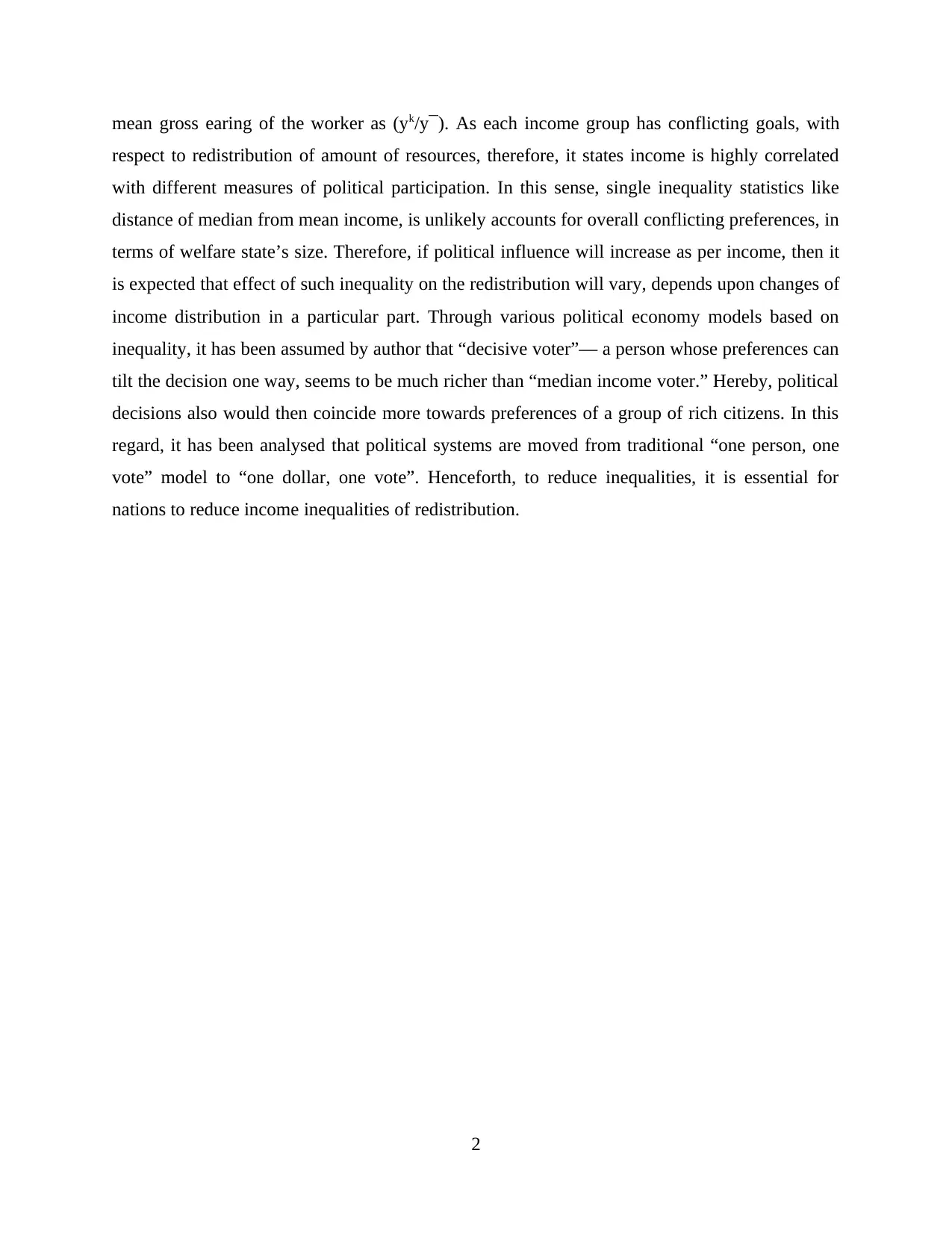Public Economics Analysis: OECD Countries, Income & Redistribution
VerifiedAdded on 2023/01/11
|4
|588
|2
Report
AI Summary
This report analyzes the relationship between income inequality and redistribution, primarily focusing on the work of Karabarbounis (2011), which examines OECD countries. The analysis delves into the non-monotonic relationship between pre-tax-and-transfer income distribution and redistribution, highlighting how the wealthy and middle class often correlate with less redistribution, while the poorer classes are associated with more. This aligns with a "one dollar, one vote" politico-economic equilibrium, where political influence is tied to income, potentially leading to policies favoring the wealthy. The report contrasts this with the paradox of redistribution and emphasizes the importance of considering multiple inequality measures and political economy models to understand cross-country differences. It examines how income distribution affects political participation and the role of the "decisive voter." The conclusion suggests that reducing income inequalities is crucial for effective redistribution.
1 out of 4





![[object Object]](/_next/static/media/star-bottom.7253800d.svg)